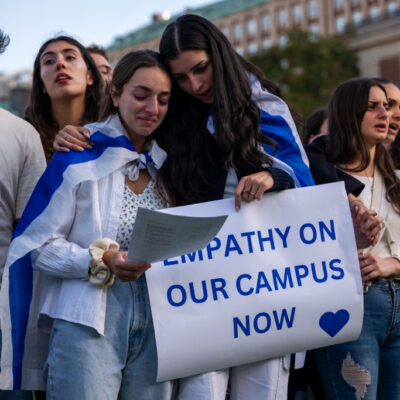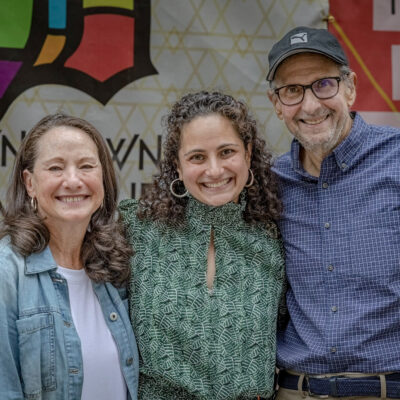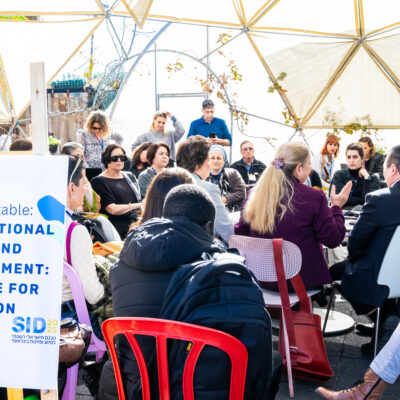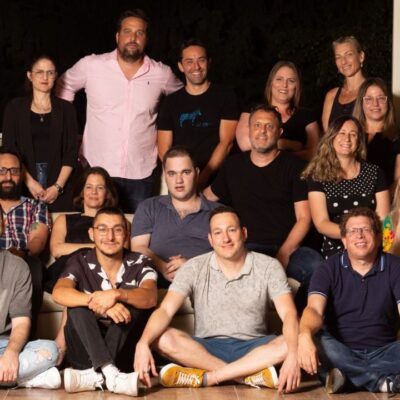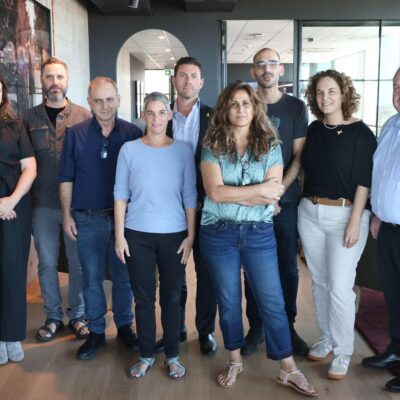Opinion
TIME TO ARTICULATE
From ambiguity to clarity: What Israel education must confront now
Earlier this month, Lisa Eisen, co-president of Charles and Lynn Schusterman Family Philanthropies, published an article in eJewishPhilanthropy featuring six recommendations from thoughtful colleagues on how to catalyze a new era in Israel education. The piece came out before the recent escalation between Israel, Iran and the U.S., and its urgency has only deepened.
One of the recommendations in the article came from me. Lisa invited me to offer, in her words, “one top suggestion for how we evolve Israel education to meet this moment in Jewish and American life.” After sending her my response, however, I realized that this question deserved a fuller answer:
In this charged environment, many Israel educators find themselves paralyzed by uncertainty. They don’t know what’s safe to say. They worry about being seen as too critical of Israel or not critical enough, about platforming the wrong voices or leaving out others — and about the personal and professional consequences of getting it wrong.

This lack of clarity exposes a serious issue: the challenge of ambiguity.
Ambiguity shows up in two very different, but equally paralyzing, ways. First, at the organizational level, many institutions have not articulated clear boundaries around what can and cannot be said. They haven’t clarified their red lines, their values, or their expectations. The result is fear — among educators, leaders and staff — of saying the wrong thing, alienating a stakeholder or facing professional consequences.
Second, at the individual level, many educators themselves are grappling with internal confusion. For years, Jewish education — especially in liberal contexts — has emphasized complexity, nuance and the value of holding multiple truths. That approach has created rich, open learning environments; but it has also led some to believe that taking a stand for Israel is incompatible with those values. Educators worry that expressing a clear conviction about Israel or Jewish identity might betray the very values of openness and pluralism they were trained to uphold.
This tension isn’t new. Even before Oct. 7, 2023, many educators were already hesitant to engage with the Israeli–Palestinian conflict in their teaching. As Keren Fraiman and her colleagues document in “Barriers to Entry: Exploring Educator Reticence for Engaging With the Israeli–Palestinian Conflict,” published in Teaching Israel: Studies of Pedagogy from the Field (Brandeis University Press, 2023), this reluctance stems from a combination of factors: limited subject knowledge, emotional strain, pedagogical anxiety and — critically — institutional and community pressures.
Fraiman writes:
“Educators are deeply aware that their engagement with the conflict may be scrutinized, questioned or outright challenged by parents, supervisors and stakeholders. This makes them hesitant not because they don’t care, but because they care deeply — and know that missteps have consequences.”
Since the Oct. 7 attacks, and most recently as the war with Iran intensified, we’ve seen this dynamic intensify dramatically as well. Educators are afraid. Executives are walking on eggshells. Boards are nervous. Everyone is waiting for someone else to speak first.
So, what can be done?
Two very different but complementary interventions can help. The first is structural, and the second is educational.
First, institutions need a structured process to define where they stand. This doesn’t mean every school, camp or synagogue needs to adopt the same position on Israel. What it does mean is that each organization should engage in a thoughtful, facilitated process — whether through surveys, coaching, or diagnostic tools — to clarify their own red lines, articulate their educational values and make those boundaries transparent to their staff.
The purpose of such a process is not to suppress disagreement but to provide clarity. When educators know what is expected—what’s in bounds and what’s out—they can operate with confidence. They can plan, teach, and lead without constantly second-guessing themselves. Clarity doesn’t eliminate dissent. It legitimizes leadership.
Of course, drawing lines is hard. The outcomes may not satisfy everyone. Some staff or students may feel that the lines drawn exclude them. But the absence of clarity is not neutrality and should not be mistaken for that. The absence of clarity only breeds silence, fear, and disconnection, which all run counter to the basic concepts of education and learning.
Second, educators need support in regaining the ability to articulate conviction, especially in complex environments. This is an identity-based task, not a policy one. It requires those of us in the field of Jewish education—teachers, mentors, trainers, and leaders—to ask: What do we stand for as Jewish educators? What are the values and commitments that animate our work? And what are we willing to prioritize, even when it’s uncomfortable?
For years, educators have been trained to hold space for multiple truths, to facilitate difficult conversations, and to emphasize process over answers. These are essential skills, but they are not sufficient. Ultimately, especially in moments of rupture and intensity, educators must be able to name what they believe. Jewish identity cannot always be reduced to a spectrum of options. In moments of crisis, Jewish educators must be willing to take a stand — with pride, with courage and with clarity.
We’ve created a generation of educators equipped to interpret, to invite reflection, to validate divergent experiences and that work remains essential. In this moment, however, Jewish educators need support in doing something more: expressing clear values — about Israel, Jewish peoplehood and Jewish identity — and helping others do the same. Not dogmatically, not defensively, but with clarity and conviction. This doesn’t mean rejecting nuance; it means teaching learners how to sit with difference while still being able to speak from a place of grounded purpose.
Although to many this moment understandably feels like a crisis, we must remember that it is also a test — a challenge we must meet in order to secure our present and future as effective and relevant Israel educators. Are we willing to build the processes and tools that can help institutions achieve clarity, even when it’s hard? And are we willing to cultivate the moral imagination and strength to stand for what we believe in, even when the ground beneath us is shifting?
If Jewish education is to meet this moment, we must answer both questions with a yes.
Shuki Taylor is the founder and CEO of M²: The Institute for Experiential Jewish Education.

 Add EJP on Google
Add EJP on Google
